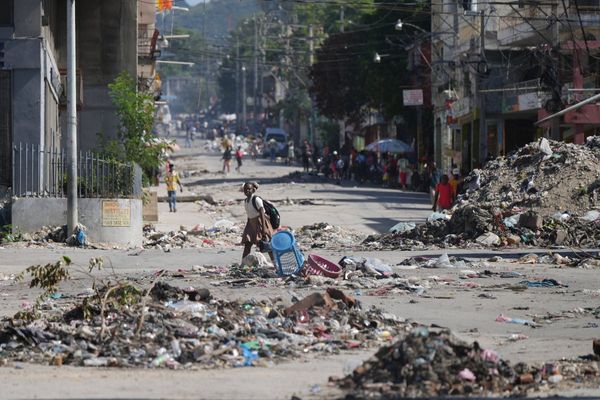
In her opening statement to the NSW parliamentary inquiry into birth trauma last week, mother of two Mary van Reyk spoke of her 10-year journey to becoming a mother. She described waiting in the same consultation room as pregnant women during one of her eight miscarriages and the specialist who told her “If you keep having miscarriages, one of those will stick”.
“I had to have a stranger tell me they couldn’t find a heartbeat while an ultrasound tool was still in my vagina,” Mary said in her written submission. “I will never recover from that moment.”
Throughout her pregnancies, Mary drew an enormous amount of support from a counsellor specialising in perinatal trauma through a program run by a local health non-profit, as well as pregnancy circles provided through a community care network.
Mary found the support she received in community care especially valuable “in the little day-to-day moments that can be very painful”.
“You know, you’re in the supermarket aisle and someone’s buying nappies, and that might hit your heart in a particular way,” Mary told Crikey. “But seeing someone else on that shopping trip who knows your story and sees you as a strong person going through this experience can really change that hurt into some kind of comfort.”
“One of the women who runs it is a woman of colour, and I am too, so I was able to get that cultural safety and cultural support in community care in a way I couldn’t through the public system, and that I think the public system is really missing.”
Mary said the mental health support she was able to access let her “move through the last eight years without my miscarriages and pregnancies having a serious ongoing impact on my life”.
“I was able to continue working; I was able to continue my relationship with my partner, my friends, my family. That’s not easy when you’re going through this process,” she said. “I fully credit the mental health support I received with that. But I was only able to participate in both of those because they were free.”
Neither program received support from the government. The nonprofit that provided Mary’s specialist counselling has now been discontinued due to lack of funding.
“The closure of that service was a massive loss for our community,” Mary said. “Even when it was there, there was a significant waiting time to get in. Other women I know had to wait for months, if they were able to get in at all.”
After Mary used up the 13 free sessions with her perinatal trauma counsellor, she was only able to continue seeing them in private practice.
“I was lucky enough to be able to afford continuing with my practitioner and paying the gap, but that’s not accessible to everyone. The gap was significant,” she said.
The lack of mental health support for people who have experienced birth trauma is only part of a wider crisis facing NSW’s mental health system. Last week, the NSW Mental Health Alliance called on the Minns government to urgently review funding levels for mental health services. Black Dog Institute executive director Professor Samuel Harvey told The Sydney Morning Herald that “the NSW mental health system is critically underfunded and on the brink of collapse … the mental health workforce is burnt out, and people who need help are falling through the cracks.”
More than 16% of adults in NSW experienced psychological distress in 2021-22, up from less than 10% in 2013-14. Despite the rise, NSW spent less on mental health services per person in 2021-22 than any other state or territory.
NSW Greens health spokesperson Dr Amanda Cohn is the chair of the state parliamentary inquiry into equity, accessibility and appropriate delivery of outpatient and community mental health care. She says the current funding model leaves mental health service providers “so under-resourced they are forced to prioritise crisis response and risk avoidance rather than providing care and healing”.
“Funding services on a fee-for-service basis or with session limits — the whole ‘10 or 20 sessions’ notion — has exacerbated fragmentation of care. Clinicians and people with lived experience have told us that what they need is to be able to form a long-term therapeutic relationship,” Cohn said. “Short-term contracts for narrowly targeted programs have left many organisations in a constant cycle of applying for grants, unable to provide their staff with job security or opportunities for growth, and unable to provide services with the flexibility to meet community need.”
Mary believes a health and mental health system that gives people the flexibility to access the support services that work for them is the key to ensuring fewer people have experiences like hers.
“Every person that goes through pregnancy is an individual, but we’re joining a system that has historically treated pregnancy as one experience. But that’s not how humans work,” she said.
“The person you get on any given day has the capacity to change your experience from an isolating one to an empowering one. We have to be able to talk to multiple people so we know that the person we choose to follow sees us as our whole experience, and not just what’s happening in that room at that time.”
NSW Minister for Mental Health Rose Jackson’s office could not be reached for comment.







